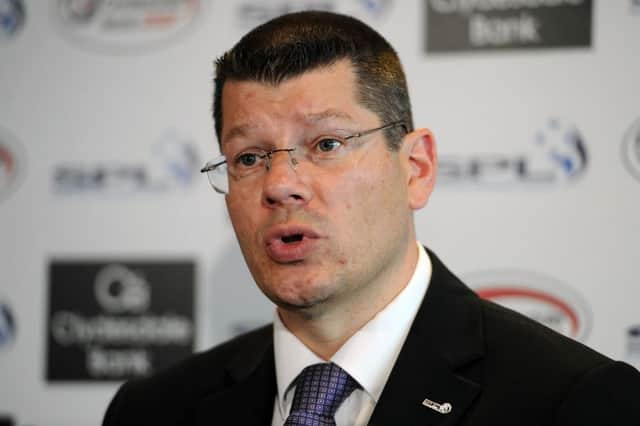Rangers Big Tax Case ruling has '˜wide-ranging implications'
This article contains affiliate links. We may earn a small commission on items purchased through this article, but that does not affect our editorial judgement.


The so-called “big tax case” came to a conclusion yesterday as five Supreme Court judges unanimously dismissed an appeal by BDO, the liquidators of oldco Rangers, bringing to an end a seven-year legal dispute that involved the club’s use of Employee Benefit Trusts (EBTs).
Advertisement
Hide AdAdvertisement
Hide AdThe tax authority opened its investigation into Rangers in 2010 after about £50 million worth of payments were made to dozens of employees through employee benefit trusts (EBTs) from 2001, and the case continued after the Glasgow-based club was consigned to liquidation over an unrelated tax debt in 2012.
After suffering two tax tribunal defeats to the Murray Group, the former majority shareholder of Rangers which administered the EBT scheme, HMRC has secured a binding triumph which it says will have major consequences. Lord Hodge and his fellow judges agreed with HMRC’s assertion the payments were taxable earnings and not loans, as contended by the club.
Many of the payments had been set out in advance in “side letters” which were separate from contracts and kept secret from the tax and football authorities.
EBTs were the subject of a legislative crackdown in 2010 but HMRC continued to pursue thousands of companies which used the schemes beforehand, with a July 2015 deadline set for firms to settle debts. Those which did not have now been urged to come forward following the result of what was seen as a major test case.
David Richardson, director general of HMRC’s customer compliance group, said: “This decision has wide-ranging implications for other avoidance cases and we encourage anyone who’s tried to avoid tax on their earnings to now agree with us the tax owed.
“HMRC will always challenge contrived arrangements that try to deliver tax advantages never intended by parliament.”
The outcome will not have any financial impact on the football club as it stands now, as the assets and business were transferred to a new company when RFC2012 was consigned to liquidation.
However, other creditors of the old company will see their payouts cut.
Advertisement
Hide AdAdvertisement
Hide AdAndy Wood, technical director of Enterprise Tax Consultants, predicted the ruling would have “dramatic” consequences for companies.
He said: “It gives HMRC the authority to pursue them for income tax without the need to embark on a further series of legal actions.
“The process of issuing follower notices to recoup payment of what is expected to be tens of millions of pounds in income tax could begin almost immediately.
“In addition, I have no doubt that HMRC will feel emboldened by this judement.”
Paul Noble, tax director at legal firm Pinsent Masons, said HMRC would be “delighted” with the decision and predicted it would cite it “extensively” as it looks to take action against other employers.
Although yesterday’s verdict will not have a direct impact on the current iteration of Rangers, the Scottish Football Association and the Scottish Professional Football League (SPFL) have been urged to take action, with demands the club be stripped of the titles it won while using the EBT scheme.
Former Rangers chairman Sir David Murray said he was “hugely disappointed” with the verdict, which “runs counter” to the legal advice provided to the club.
He added: “It should be emphasised that there have been no allegations made by HMRC or any of the courts that the club was involved in tax evasion, which is a criminal offence.
SEE ALSO
Advertisement
Hide AdAdvertisement
Hide Ad